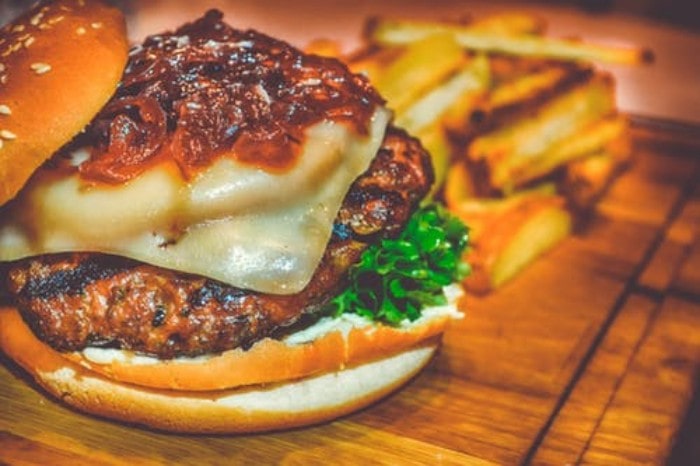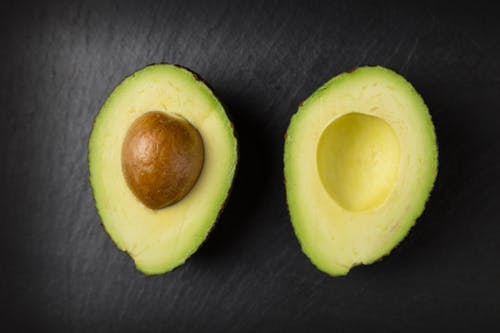
Calories are units of energy, referring to the amount of energy that people get from food and drink. Energy comes from the body’s breakdown of foodstuffs into glucogenic and ketogenic amino acids. Every food packaging item lists calories and they are the subject of numerous weight-loss strategies, however, they should not be counted religiously if you’re trying to lose weight. So what are the healthy ways to lose body fat? Let’s find out more.
The facts about calories
The body needs calories to survive, and they are essential for human health. The key is to concede the correct amount. As a general guide, there are approximately 3500 calories in a pound of body fat. Everybody needs to consume different amounts of energy every day, depending on factors such as age, size, sex, and activity level.
There are essentially two types of calories: calorie (cal) which indicates the amount of energy you need to raise 1 g of water by 1 degree Celsius and a kilocalorie (kcal, equal to 1000 cal) indicating the amount of energy needed to raise a kilo of water by the same amount. On a daily basis, it is recommended that the average male needs around 2500 kcal a day and 2200 kcal for a woman. However, not everybody needs this exact amount, and the number depends on many factors, including the following:
- Sex
- Height
- Weight
- General health
- The amount of physical activity carried out in the day
- Body shape
People have been rather obsessive about calories and body fat, yet these two things are multifaceted when it comes to human biology.
Health, calories, and body fat
In general, taking in more calories than you need will cause them to be stored as fat. Consequently, if you eat too little, then your body will release its fat stores as energy, causing weight loss. However, losing weight is not as easy as simply consuming fewer calories. Just look at human history – most people have been regulating their weight very efficiently for thousands of years, even before anyone knew what the calorie was.
The epidemic problem of obesity coincides with an obsessive increased focus on calorie counting. Calorie counting should not be used as a body fat measurement tool, so what’s going on? People need to consider hormones and how they regulate the body because they can influence fat storage, appetite, and satiety. Research suggests that low-carbohydrate and ketogenic meals trigger the hormones, which lead to a natural decrease in calorie intake, especially for those people who have problems with weight gain or diabetes.
In a study that consumed either bagels or eggs for breakfast, each containing identical amounts of calories, the ones who consume eggs had longer satiety and consume fewer calories at lunch then the bagel group. Insulin levels also influence the way you burn calories, and so your insulin sensitivity is important. Decreasing the intake of carbohydrates can also counter out the effect that insulin has on driving weight gain.
Low-carbohydrate diets often outperform low-calorie diets when weight loss is concerned, and it has been widely documented in the scientific literature. This is the reason that diets such as the ketogenic are becoming so popular because of their results for weight loss. Even though calories are important in terms of weight regulation, they are not the be-all and end-all of losing weight. In fact, they are only one factor, which needs to be considered.

You should eat fat to be healthy
Unfortunately, many mainstream diets are still preaching not to eat fat, but in what ways is body fat important to good health? Fat in the body helps to protect vital organs, produces important hormones, supports cell growth, and is essential for the body. Not all fat is bad for you. Healthy fats, or “good” fats, can help the body control weight, manage fatigue, and regulate the mood. You can find these in foods such as avocados, nuts, seeds, MCT oil, and fatty fish that can help fill you up and provide ample nutrition.
A lot of people make the wrong trade-offs when dieting, often thinking too much about fat and calories, but they are often ignorant about how the body burns energy. The human body can either burn carbohydrates or fat stores, and the body can store excess calories as body fat in practically unlimited amounts. If you follow a low-carbohydrate and high-fat diet such as the ketogenic, the body will simply rely on fat stores for energy. The result of this is that the body becomes more efficient at burning fat, so you ultimately lose weight in a healthy way.
Often people make the mistake of swapping healthy oils for refined carbohydrates and sugar. In a fat protein efficient body type diet, you can consume fat, which will be burnt as energy and you will feel full quickly so that you’re not gorging on unhealthy snacks or consuming additional calories. Reducing body fat can be easily done if you get your body used to burn it for energy, and this requires you to eat it in the first place.
Final thoughts
A healthy amount of body fat is needed, so it should never completely cut out fat from your diet. We certainly do not recommend that you count calories because you’re not going to know what the body will do with them, plus they do not offer an absolute metric for controlling your diet and general health. We instead feel that it is much more important to choose foods that can promote hunger reducing hormones, keep you full for longer, and allow you to healthily reduce your weight. Focus on food that is minimally prepared, containing high-quality fat, protein, and nutrients.
Have you had luck dieting? Tell us about your experiences in the comments section below.
Author’s bio:
This article was written by Daniel Torres, a copywriter and part-time fitness instructor who lives in Chicago, the U.S. state of Illinois. When he’s not at his desk writing or teaching, Daniel loves running and is planning to create his own blog about fitness and health.
